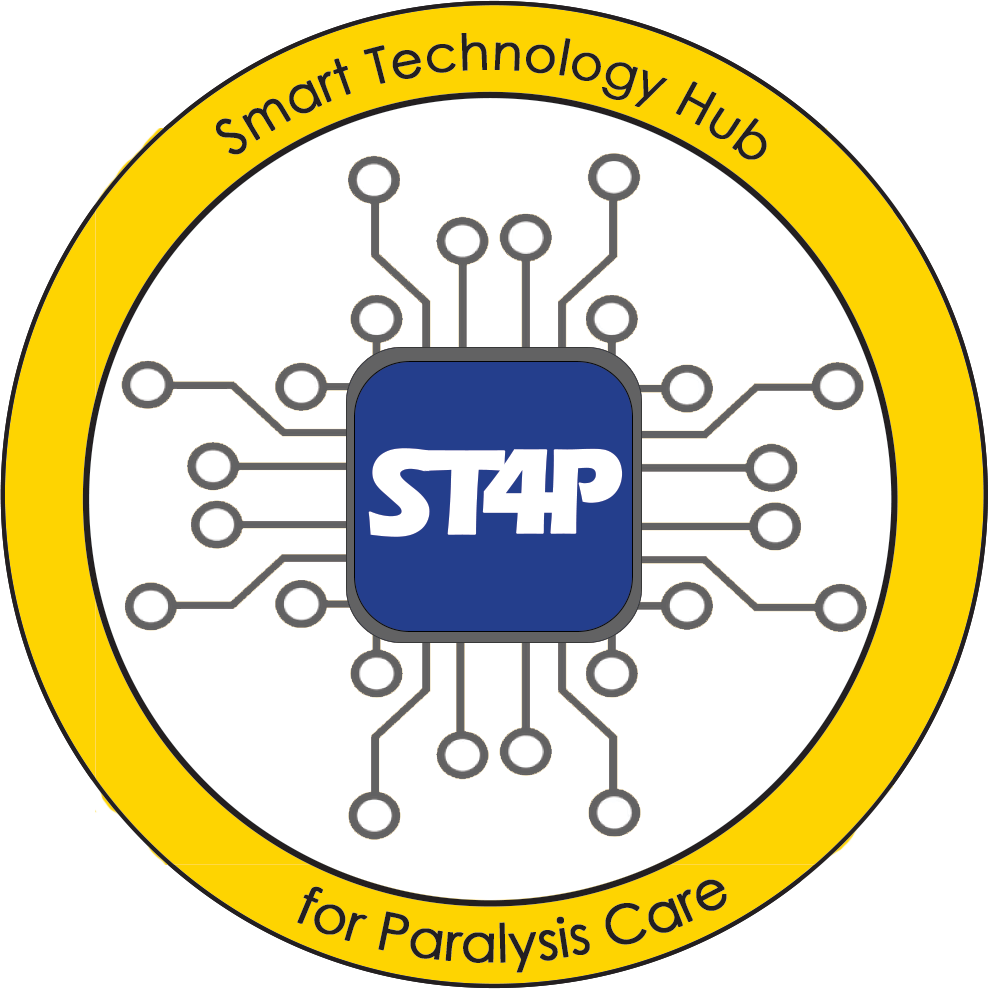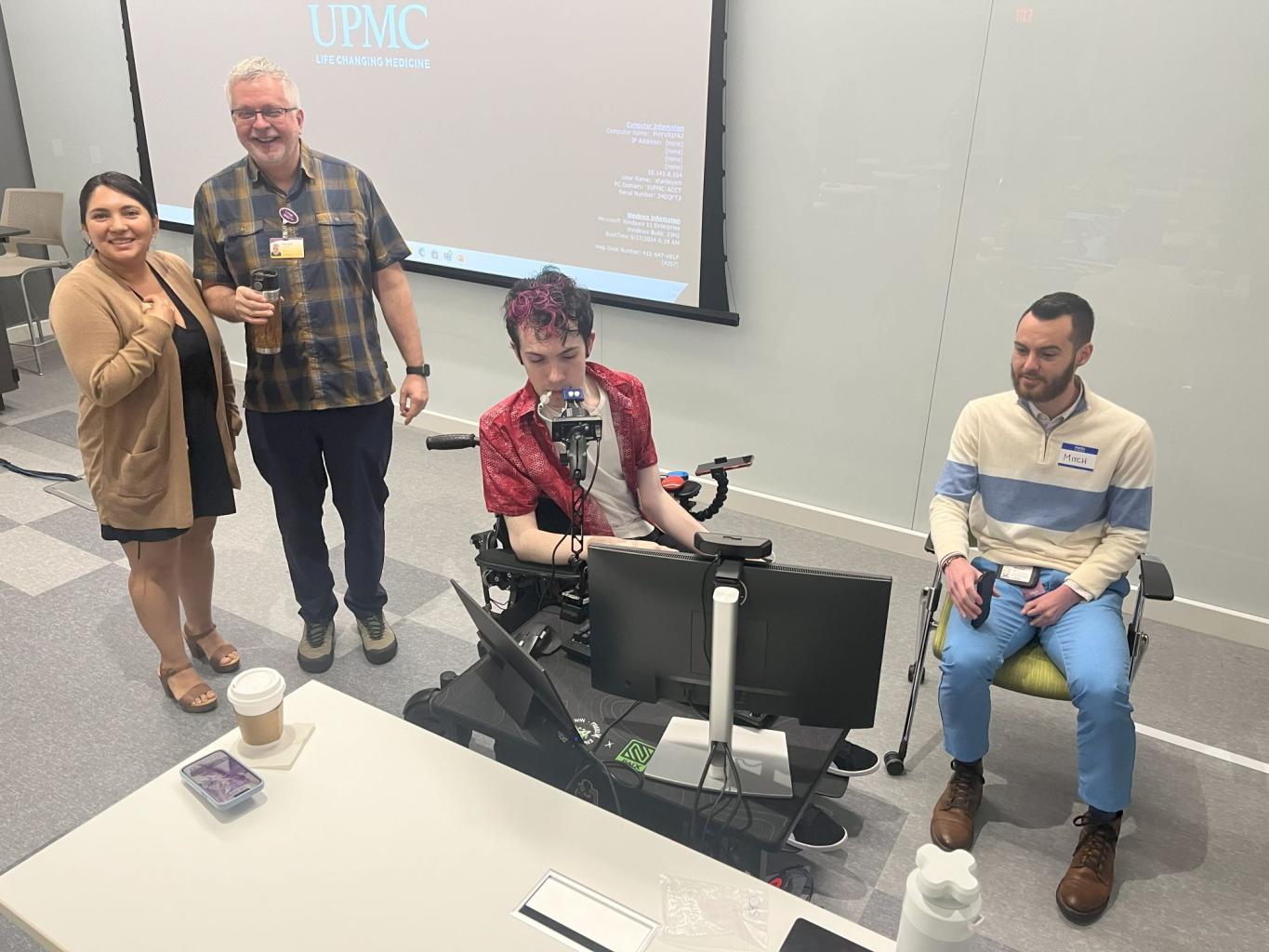
The ST4P was established in September 2023 with support from a private trust. This initiative is dedicated to exploring the optimal integration of smart technologies into paralysis care, spanning from inpatient units through the transition to home and community settings. Our focus is on supporting individuals in their transition and self-management through the use of both mainstream tech solutions and the development of new AI-driven tools. By leveraging these innovations, ST4P aims to enhance the independence and quality of life for people experiencing paralysis.
Read the original press release
Vision
To lead a transformation in paralysis care by driving the seamless integration of smart technologies across the care continuum, empowering individuals with unparalleled independence, inclusion, and access to innovative solutions that continuously enhance their autonomy, health, and engagement within the community.
Mission
To empower individuals with paralysis by integrating smart technologies into their care, enhancing their independence, health, and quality of life, while serving as a national resource center supporting research, training, advocacy, and knowledge translation to advance smart technology implementation in paralysis care.
Projects
-
SmartTech Solutions for Inpatient Care
-
In collaboration with UPMC Mercy Inpatient Rehabilitation, this project explores the impact of integrating in-room smart technology with personalized training and support for inpatients with paralysis. By introducing advanced technology solutions during the inpatient phase, the project aims to enhance both the quality and efficiency of care while also building patients’ confidence and competence in using smart technology, increasing the likelihood that they will adopt it as part of their daily routine after discharge.
-
SmartTech Solutions for Hospital-to-Home Transitions
-
Expanding upon the foundations established in our inpatient project, this project strategically recruits individuals with complex disabilities from our original cohort, transitioning the focus from hospital to home settings. By extending smart technology solutions into the homes of these participants after their discharge, we aim to create a seamless continuum of care.
This project will comprehensively explore the barriers and facilitators to effective implementation in home environments, with a keen focus on how these technologies should be delivered to fit individual needs and contexts. We will also rigorously evaluate the impact of these smart technologies on enhancing the independence and participation of the individuals, while simultaneously assessing the effects on caregivers.
This holistic approach aims to not only improve individual outcomes but also to inform broader strategies for integrating smart technology solutions into paralysis care, ensuring more sustainable and impactful results. -
Needs Assessment for Bridging Gaps in SmartTech Solutions
-
This project aims to explore how smart technology can better address the needs of individuals with paralysis. We will identify areas where SmartTech solutions can be developed or adapted, as well as gaps in matching technology to individual needs. It will also assess barriers to access and full utilization, including gaps in education, training, and ongoing support. Additionally, the research will guide improvements in customization, accessibility, and maintenance, and highlight policy or funding limitations. These findings will support the development of new tech solutions, the adaptation of existing solutions, and the enhancement of educational and support systems to promote greater technology adoption and effectiveness.
Study #1: Perspectives on Barriers and Facilitators of Adaptive Gaming among Current Gamers with Paralysis
-
AI-Driven Self-Care Solutions
-
This project explores how AI-powered solutions, such as intelligent chatbots and seamless integration with smart sensors or devices, can revolutionize self-care routines for individuals with paralysis. By embedding personalized care protocols into advanced AI chatbots, patients receive timely reminders for essential daily tasks, alongside proactive check-ins and the ability to ask questions in real-time. This dynamic system ensures consistency in self-management while providing real-time logging and progress tracking. Caregivers and healthcare providers gain valuable insights to monitor adherence and adjust care plans as needed. The integration of AI not only promotes greater independence and well-being but also reduces caregiver burden by offering responsive and personalized support.
Recent Presentations & Publications
- 2024
-
- Worobey, L., Ding, D., Redpenning, D., Huzinec, R. (2024, September 3rd). Smart-er Clinical Practice: How to Assess and Recommend Smart Home Technology for Individuals Who Have Paralysis. Academy of Spinal Cord Injury Professionals Annual Conference, Chicago, IL.
- Worobey, L., Huzinec, R., Morris, L. (2024, August 25th). From Mainstream. to Bedside – Using Smart Home Technologies to Enhance Patient Care and Participation. Paralyzed Veterans of America Summit and Expo, Anaheim, CA.

